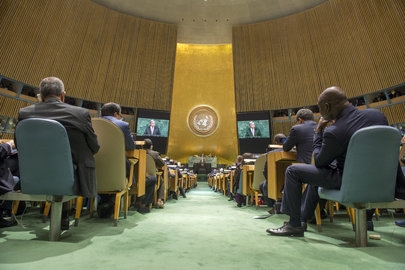Reaching SDGs through Private Sector Partnerships

Presently, over half of partnerships with the UN involve only one private sector partner. Additionally, 79% of UN partnerships last less than five years. These factors have led to a lack of scalability with partnerships and the inability for scaling up to increase positive impacts. There are also multiple issues that stem from the lack of firm guidelines for UN-private sector partnerships. Partnerships are frequently inconsistent with national priorities, occur without a clear project or requirement and lack transparency. UN partnerships with the private sector occur under the guidelines of the UN Global Compact, but these rules are voluntary and therefore do not effectively manage risk or increase accountability.
The UN report on the status of progress towards the SDGs, prepared by UN Secretary-General António Guterres for the 72nd session of the United Nations General Assembly (UNGA) was held on 12-25 September 2017 in New York City, included recommendations to improve UN-private sector partnerships and their impact of progress towards the SDGs. In order to effectively advance progress towards the SDGs by 2030, partnerships will need to involve more actors over a larger period of time. Partnerships with local companies need to increase, as these will also benefit local economies hugely. Reporting on partnerships needs to increase, and a firm framework should be developed for UN-private sector partnerships to interact through in order to increase transparency and coherence between actors.
The UN report concluded by stating, “The United Nations should focus on supporting businesses to assume a greater role and responsibility in addressing global and local challenges by embracing fundamentally responsible and sustainable business practices.” As expectations grow for businesses to be socially responsible, many choose to partner with organizations as it opens them up to new opportunities in new markets. Private sector partnerships with the UN need to include transparency, shared goals and values, and multiple partners to effectively influence progress towards SDGs.
Sustainable Development Goal (SDG) 17 is to “revitalize the global partnership for sustainable development,” and the UNGA looked at how improved cooperation with the private sector will be the key to reaching all of the 17 SDGs by 2030. The Secretary-General’s report stated that SDG 17 “enshrines partnership as a goal in itself but also as a critical means of implementation for the entire agenda.” The report looked at the present issues affecting partnerships between the UN and the private sector, including lack of scalability, minimal partners in each partnership, and short time frames. A second report prepared by Global Policy Watch examined the lack of firm guidelines with UN-private sector partnerships restricting progress towards SDGs.
Read the full Secretary-General’s report for the UNGA here.
Read the full Global Policy Watch report here.
The Aid and International Development Forum will be holding the 3rd Aid and Development Africa Summit at the Safari Park Hotel in Nairobi, Kenya on 27-28 February 2018. The Summit will bring together humanitarian and development leaders, decision makers and advisors committed to achieving the Sustainable Development Goals (SDGs) in the region. For more information, visit the website.
Image Source: UN News & Media








